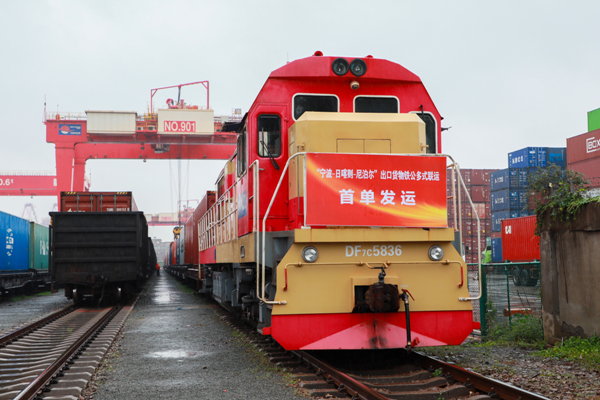Financial regulator to enhance risk control
The National Financial Regulatory Administration will strengthen efforts to promote reforms and risk controls among small and medium-sized financial institutions, support stable development of the real estate sector and enhance financial regulation — among other tasks — to propel high-quality development of the financial sector, officials from the financial watchdog said at a news conference in Beijing on Wednesday.
Xiao Yuanqi, deputy head of the NFRA, said China will implement pragmatic and tailored reforms among small and medium-sized financial institutions to defuse risks and promote development, including strengthening their corporate governance and conduct regulation.
"It is important (for these institutions) to establish robust systems and procedures for major decision-making to ensure standardized operations. Additionally, there is also a need for enhanced disclosure to leverage market constraints and external oversight," Xiao said.
"We will also strengthen regulatory oversight, targeting in particular the behaviors of major shareholders to prevent them from manipulating or exerting undue influence over small and medium-sized financial institutions."
The administration will step up the supervision of senior management and other key personnel of such institutions to ensure they fulfill their duties diligently and effectively, Xiao said.
He also urged small and medium-sized financial institutions to find their own market niches, leveraging their strengths while mitigating weaknesses to form their own core competencies.
Wang Shengbang, director of the Legal and Regulation Department of the administration, said the NFRA will leverage the advantages of its tiered supervisory systems to continuously enhance financial risk monitoring and early warning capabilities, thereby improving financial risk prevention and control.
"Using new technologies and methods, we can enhance information interconnectivity and the monitoring and early warning platforms targeting illegal financial activities, and therefore increase our ability to detect illegal financial activities early and intervene in a timely manner."
Wang said the authorities will further clarify the boundaries for the sound operations of financial institutions within a risk-based prudential regulatory framework, thus guiding financial institutions to operate with prudence.
Liao Yuanyuan, director of Statistics and Risk Surveillance Department of the administration, said the NFRA will collaborate with relevant departments to continue pressing local governments, real estate firms and financial institutions to "shoulder their responsibilities" and "enhance the effectiveness of the urban real estate financing coordination mechanisms", thereby providing continuous and improved financial services to support the stable and healthy development of the property market.
Data from the administration showed that commercial banks have reviewed 5,392 projects on the white list recommending real estate projects eligible for financial support from financial institutions since the launch of the mechanisms in the first quarter. Approximately 1.4 trillion yuan ($200 billion) has been approved for financing these selected projects.

 China makes outstanding contributions to global energy transition
China makes outstanding contributions to global energy transition  Ningbo village inspires Malawi official
Ningbo village inspires Malawi official  A look at China's economic data in the first three quarters of 2024
A look at China's economic data in the first three quarters of 2024 


